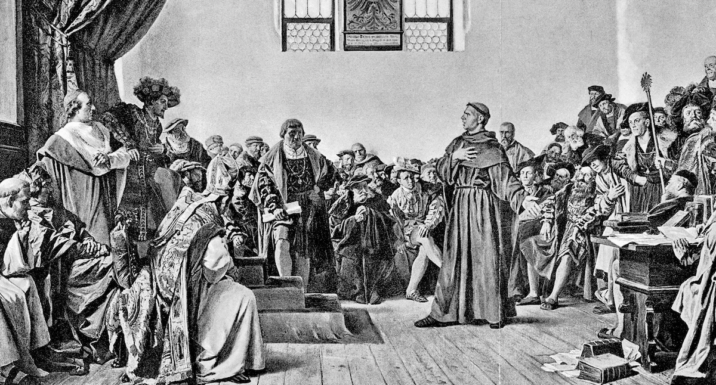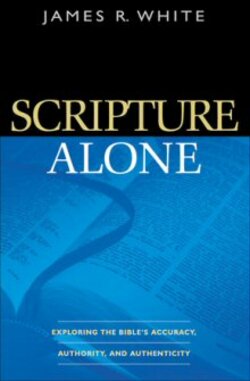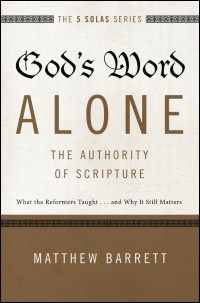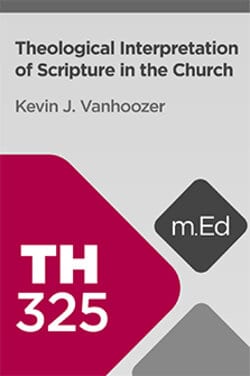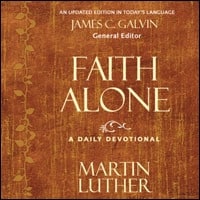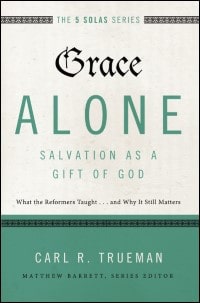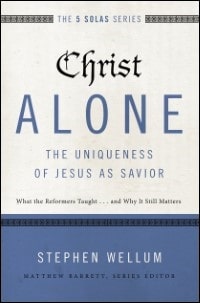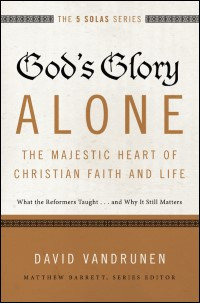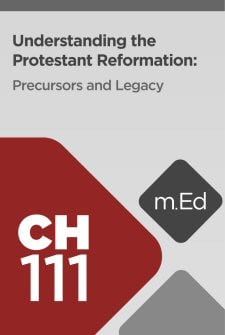The 5 Solas of the Reformation may not be a term every Christian recognizes. Yet these foundational principles that came out of the Reformation dramatically impacted modern Christianity and our understanding of the proper place of Scripture, faith, grace, God, and Christ.
What are they?
First, a brief overview of the Reformation.
What was the Reformation?
The Reformation, according to the International Standard Bible Encyclopedia, was a series of reform movements birthed in the late fourth century “to criticize certain aspects of Roman Catholic doctrine and practice, culminating in the sixteenth century with the establishment of Protestant Churches.”1 The most prominent Reformers weren’t trying to branch off from Catholicism but rather bring the Catholic Church in line with what they read in the Bible.
Most Christians relate the Reformation to Martin Luther’s act of nailing his Ninety-Five Theses to the Castle Church door on October 31, 1517. (Take this quiz to see how much you know about the Reformation!) In this document, Luther exposed what he saw as the corrupt institution of “indulgences,” which promised the full or partial remission of temporal punishment for sins accompanied with an action, such as saying a prayer.
Soon Luther and the Reformers’ opposition to the Church went beyond the issue of indulgences. In 1520 Luther further consolidated his program of reforming the Church “with a direct appeal to the German people to take the initiative.”2 People in Luther’s day knew Scripture—even more so because the invention of the printing press less than a century before had given everyday Christians unprecedented access to the Bible in their own language. Combined with the “humanists’” cultural push ad fontes (which means “to the sources”), Luther and others were returning en masse to the words of Scripture and the writings of early Church leaders.
This return to the original sources of the Christian faith empowered Luther to challenge the pope on the doctrine of salvation, interpretation of Scripture, and the significance of Church tradition.
And so the 5 Solas of the Reformation were birthed.
What exactly are the 5 Solas of the Reformation?
The 5 Solas of the Reformation (“solas,” meaning, “alones”) are five principles foundational to the doctrine of salvation that many branches of Protestantism, including the Lutheran and Reformed branches, still teach today.
- Sola Scriptura, or “God’s Word alone,” maintains that the Bible is the highest source of authority in a Christian’s life, the final court of appeal (though not the only authority: the Bible itself mentions governmental and other authorities).
- Sola fide, or “faith alone,” affirms that justification—being made right with God—comes only through faith in Jesus.
- Sola gratia, or “grace alone,” says sinners are saved as an unearned gift of God’s grace, “not as a result of works, so that no one may boast” (Eph 2:8–9).
- Sola Christo (“solus Christus”), or “Christ alone,” emphasizes the exclusivity of Jesus’ role in salvation: “No one comes to the Father except through me” (John 14:6).
- And soli Deo gloria, or “to the glory of God alone,” says that the purpose of creation, salvation, and everything—including our goal as Christians—is the glory of God, “that God may be all in all” (1 Cor 15:28).
In this quote from Luther’s famous speech at the Diet of Worms (1521) after being asked to renounce his teachings, we see the sentiments of how sola Scriptura was the hinge that led to the other four “solas”:
Unless I am convinced by the testimony of the Scriptures or by clear reason (for I do not trust either in the pope or in councils alone, since it is well known that they have often erred and contradicted themselves), I am bound by the Scriptures I have quoted and my conscience is captive to the Word of God. I cannot and will not retract anything, since it is neither safe nor right to go against conscience. Here I stand; I cannot do otherwise; May God help me. Amen.3
Though it took some time, as J. V. Fesko says, for Luther’s actions and for these five principles “to ripple through history,”4 the 5 Solas of the Reformation eventually helped the Church recover her lost footing.
The below quotes are pulled from the books on each sola in The Five Solas Series (5 vols.), now 15% off. Each is followed by key Scripture and other resources supporting the doctrine.
Sola Scriptura: God’s Word alone
“[Sola Scriptura] means that Scripture alone is our final authority. Authority is a bad word in our day of rugged individualism. But the Bible is all about authority. In fact, sola Scriptura means that the Bible is our chief, supreme, and ultimate authority. Notice, however, that I didn’t say the Bible is our only authority. . . . sola Scriptura is too easily confused today with nuda scriptura, the view that we should have ‘no creed but the Bible!’ Those who sing this mantra believe that creeds, confessions, the voices of tradition, and those who hold ecclesiastical offices carry no authority in the Church. But this was not the Reformers’ position, nor should it be equated with sola Scriptura.” —Mathew Barrett, God’s Word Alone: The Authority of Scripture
Key verses
I have applied all these things to myself and Apollos for your benefit, brothers, that you may learn by us not to go beyond what is written, that none of you may be puffed up in favor of one against another. (1 Corinthians 4:6)
No prophecy of Scripture comes from someone’s own interpretation. For no prophecy was ever produced by the will of man, but men spoke from God as they were carried along by the Holy Spirit. (2 Peter 1:20–21)
All Scripture is breathed out by God and profitable for teaching, for reproof, for correction, and for training in righteousness, that the man of God may be complete, equipped for every good work. (2 Timothy 3:16–17)
Related resources
Sola fide: Faith alone
“Centuries have passed since the Reformation, and we may wonder: Does sola fide still matter today? Is the notion of justification by faith alone just a relic of days gone by, reflecting a nostalgia for a previous time? . . .
“I believe that the Reformation cry of sola fide should continue to be taught and treasured today because it summarizes biblical teaching, and God’s Word never loses its transforming power. The Word of God speaks in every era and in every place. While some may hold on to sola fide to uphold tradition, I believe we should hold on to the tradition of sola fide because it accords with the Word of God. Justification by faith alone isn’t the product of rigid and brittle orthodoxy. It speaks to the minds and hearts of people all throughout history because it tackles one of the fundamental questions of our human condition: How can a person be right with God?” —Thomas Schreiner, Faith Alone: The Doctrine of Justification
Key verses
And to the one who does not work but believes in him who justifies the ungodly, his faith is counted as righteousness, just as David also speaks of the blessing of the one to whom God counts righteousness apart from works. (Romans 4:5–6)
Yet we know that a person is not justified by works of the law but through faith in Jesus Christ, so we also have believed in Christ Jesus, in order to be justified by faith in Christ and not by works of the law, because by works of the law no one will be justified. (Galatians 2:16)
For by grace you have been saved through faith. And this is not your own doing; it is the gift of God, not a result of works, so that no one may boast. (Ephesians 2:8–9)
Related resources
Sola gratia: Grace alone
“The language of grace so permeates the Bible and all traditions of Christian theology that to claim that salvation is by grace alone is, in itself, to claim very little at all. It does not distinguish Augustine from Pelagius, Thomas Aquinas from Gabriel Biel, Martin Luther from Desiderius Erasmus, or William Perkins from James Arminius. What distinguishes them is how grace is understood. There is therefore a need for definition, lest grace become merely an empty piece of theological rhetoric. Indeed, unlike ‘faith alone,’ ‘grace alone’ as a simple phrase is unlikely to provoke much controversy among anyone who claims the name Christian.” —Carl Trueman, Grace Alone, Salvation as a Gift from God
Key verses
For by grace you have been saved through faith. And this is not your own doing; it is the gift of God, not a result of works, so that no one may boast. (Ephesians 2:1–10)
For the grace of God has appeared, bringing salvation for all people, training us to renounce ungodliness and worldly passions, and to live self-controlled, upright, and godly lives in the present age, waiting for our blessed hope, the appearing of the glory of our great God and Savior Jesus Christ. (Titus 2:11–13)
And now I commend you to God and to the word of his grace, which is able to build you up and to give you the inheritance among all those who are sanctified. (Acts 20:32)
Related resources
Solo Christo (solus Christus): Christ alone
“Solus Christus expresses the biblical conviction that there is ‘one mediator between God and men, the man Christ Jesus’ (1 Tim 2:5), and that therefore ‘there is salvation in no one else, for there is no other name under heaven given among men by which we must be saved’ (Acts 4:12). Christ’s identity is absolutely exclusive and his work entirely sufficient. We have no need, then, for any other prophet to provide us with a new revelation, any other priest to mediate between us and God, or any other king to rule Christ’s Church. Christ alone stands at the center of God’s eternal purposes, Christ alone is the object of our saving faith, and therefore Christ alone must stand at the very center of our theology. Stephen Wellum is therefore perfectly right when he argues here that solus Christus is the linchpin of Reformation theology and the center of the other four principles or solas of the Reformation.” —Matthew Barrett, Christ Alone—The Uniqueness of Jesus as Savior
Key verses
He saved us, not because of works done by us in righteousness, but according to his own mercy, by the washing of regeneration and renewal of the Holy Spirit. (Titus 3:5)
But now the righteousness of God has been manifested apart from the law, although the Law and the Prophets bear witness to it—the righteousness of God through faith in Jesus Christ for all who believe. (Romans 3:21–22)
And he is the head of the body, the church. He is the beginning, the firstborn from the dead, that in everything he might be preeminent. (Colossians 1:18)
Related resources
Soli Deo gloria: God’s glory alone
“Claims about Scripture alone, faith alone, grace alone, and Christ alone concerned the two chief points of debate between Rome and the Reformation: religious authority and the doctrine of salvation. Soli Deo gloria thus appears to be a bit of an outlier. When the Reformers proclaimed that glory belongs to God alone, did Roman Catholics really respond that glory in fact belongs equally to God and something or someone else? Does the principle of soli Deo gloria, magnificent as it is, really have much to do with the Reformation itself?
“Indeed it does, even if Rome never directly denounced the idea of glory to God alone as it denounced the ideas of Scripture alone and faith alone. Soli Deo gloria can be understood as the glue that holds the other solas in place, or the center that draws the other solas into a grand, unified whole. Recent writers suggest the same idea when they speak of soli Deo gloria as ‘the logical implication of the other four points’ or as the motto that ‘subsumes all the others.’” —David VanDrunen, God’s Glory Alone: The Majestic Heart of Christian Faith and Life
Key verses
So, whether you eat or drink, or whatever you do, do all to the glory of God. (1 Corinthians 10:31)
We were buried therefore with him by baptism into death, in order that, just as Christ was raised from the dead by the glory of the Father, we too might walk in newness of life. (Romans 6:4)
Therefore God has highly exalted him and bestowed on him the name that is above every name, so that at the name of Jesus every knee should bow, in heaven and on earth and under the earth, and every tongue confess that Jesus Christ is Lord, to the glory of God the Father. (Philippians 2:9–11)
***
Related articles
- Reformation Day: The Other Holiday on October 31
- Does the Protestant Reformation Still Matter? (Interview)
- How Luther Accidentally Sparked the Reformation
- Happy Reformation Day! [Quiz + Book Recommendations]
- N. J. Opperwall, The International Standard Bible Encyclopedia, Revised, “Reformation,” Geoffrey W. Bromiley, ed., (Eerdmans), 1979–1995.
- E. A. Livingstone, Oxford Dictionary of the Christian Church, “Martin Luther,” (Oxford University Press, 2005), 1015.
- Glen S. Sunshine, The Reformation for Armchair Theologians (Westminster John Knox, 2005), 34.
- Dr. J. V. Fesko, Tabletalk Magazine, “Sola Fide” (November, 2012) 18.

